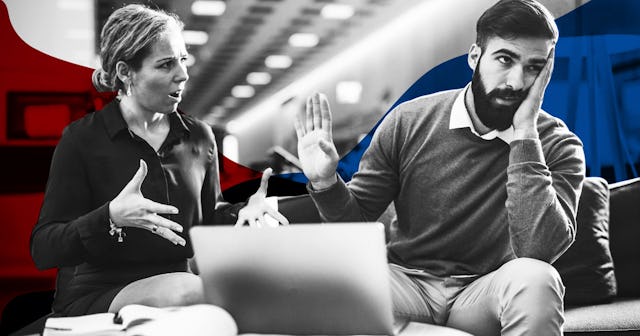It's Hard For Me To Be Friends With People Who Haven’t Experienced Adversity Or Tragedy

I was chatting with a coworker while eating some crackers from my lunch. I offered her one, and she asked what kind they were. “Wheat Thin something-or-others from Safeway. You know, the off-brand.”
She gave me a snarky curled-lip look and asked why I would ever buy something off brand.
“Because they’re cheaper,” I said matter-of-factly. “It’s what I was raised on.”
She maintained her disgusted look.
Let me take a step back. When I say she “asked me,” what she really did was shame me for buying something off-brand, particularly when I consider the long rant she went on about how she’s never eaten anything off-brand. This was the same woman who grew up in an affluent family in an upper class town and went to a private high school and liked to complain about her housekeeper. There is nothing wrong with having a housekeeper, but there is something exhausting about working with someone who regularly complains about it.
I’d worked with her long enough to know that she’d never lost a family member, never struggled with drug addiction or an identity crisis. She’d never had a family member attempt suicide or go into rehab. Never looked in the fridge and not found food, or had to watch her parents ask a stranger for gas money. She didn’t grow up in a home where sometimes family members got locked out, or where a parent lost their job without warning or a severance package.
Now, listen, this coworker, she isn’t a bad person. She is kind. She cares for other people and has a wonderful family with bright and well cared for children. And you know what, perhaps she has faced adversity that I don’t know about. Perhaps she’s had a miscarriage or was abused or was bullied in school, and she simply doesn’t wear it on her sleeve like I do.
But at the same time, I have a difficult time listening to her talk about how stressed she is because the company that delivers her pre-prepped meals keeps getting her order wrong and now she can’t post an Instagram story of her cooking dinner tonight.
I don’t want to make it out like I had the worst childhood in history, but I have experienced hardship. I’ve visited my father in jail, and I cleaned out his apartment after his drug-induced death. I’ve been homeless and I’ve wondered where the next meal might come from. I’ve been kicked out of school for being pissed off at the world, and I’ve locked my brother out of the house because he was getting violent. I’ve watched my mother swallow her pride and humbly ask the church for food, and I’ve watched my father get arrested. So I have a difficult time connecting with people who haven’t experienced real, heart-breaking, not-sure-where-you-will-turn adversity.
jimdfs/Reshot
And I don’t think that makes me a bad person. I think it just means I’ve seen some unfortunate things and lived through some troubling events, and now I have a difficult time listening to someone complain about something that seems trivial.
But I suppose the really strange thing is, I’m trying to give my children that fresh-meat-on-the-table, name-brand clothing, happy-family-dinner each night life that I always wanted as a child. I’ve worked really hard to break the cycle. I went to college on my own and have fought to keep my marriage strong. I’ve done everything I could think of so my children will never have to experience what I went through as a child.
And when I think about that, I am left wondering if I’m creating children that are exactly like my co-worker, who, to be frank, drives me a little bonkers. That’s the really twisted part of growing up under difficult circumstances. You want your children to have more than you did. You don’t want them to experience the trauma and heartache of a difficult childhood, but at the same time, you can’t help but identify moments of hardship that ultimately made you stronger, grittier, and changed the way you view the world in ways that have given you empathy and understanding for the struggles of others.
Elaine Baylon/Reshot
Am I stronger because I experienced a troubled childhood? Yes, I think in many ways I am. I honestly know that regardless of how bad it gets, I will find a way. I can look at someone living with an unfortunate situation they have no control over and understand their strife in a non-judgmental way. But on the flip side, I struggle connecting with someone’s simplistic obstacles, and unless they’ve lived through it, they cannot understand the impact of real tragedy or adversity.
It’s for that reason right there that when someone wonders why I’d ever eat off-brand crackers, I just look them in the eyes and shrug, and feel like, though we’re two people sitting across from each other, we might as well be oceans apart.
And when I think about that, I realize that a good all-around fix here is empathy. Rather than making snide comments about someone’s off-brand food, or when they can’t throw away clothing until it’s 100% worn out, or for cutting their own hair, instead of shaming them for it, engage them in a conversation. Ask about their childhood, get to know them and their lives in a hope to understand them better. Take the time to bridge that gap before your judgment makes it wider.
This article was originally published on